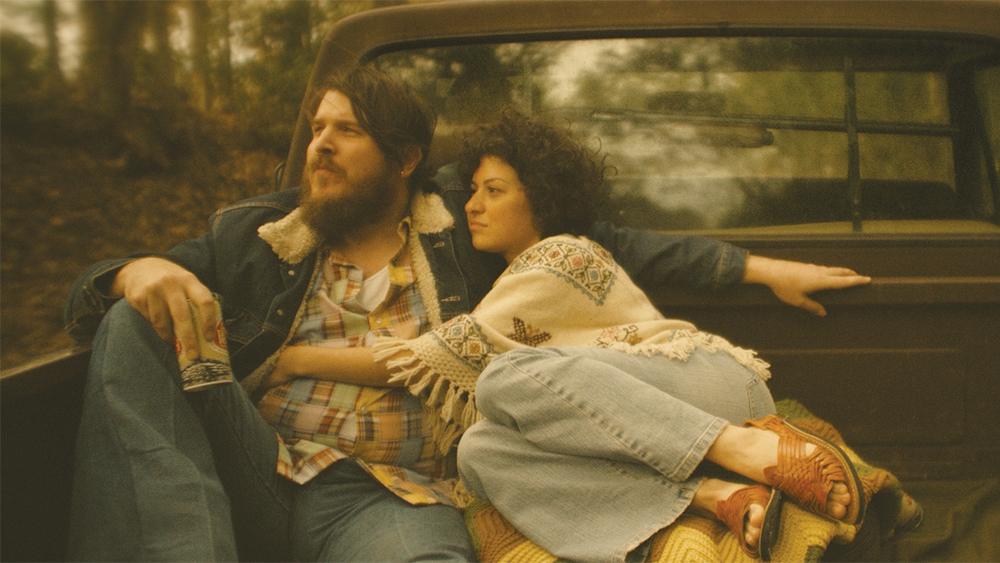Blaze
by George Wolf
Outlaw country musician Blaze Foley lived too hard and died too young, a life so steeped in cultish mystery that even the director of his biopic believed an urban legend about what led to Foley’s tragic death.
Ethan Hawke, who also co-wrote the film with Foley’s ex-wife Sybil Rosen, presents Blaze’s story with respectful grace and an observational tone that moves casually but cuts deeply. Seemingly drawing inspiration from frequent collaborator Richard Linklater (who has a cameo role in the film), Hawke’s directing style is unassuming and unhurried, mining resonance from small moments that define his subject.
It seems cosmically right that a virtual unknown singer-songwriter, Ben Dickey, plays Foley, who may be best known to mainstream country fans as the writer behind songs recorded by artists such as Merle Haggard, Willie Nelson, Lyle Lovett, and John Prine.
Dickey, who was working as a chef when Hawke offered him the role, is a revelation. Though more physically imposing than the real Foley, Dickey reveals the demons that frequently bested Blaze, pushing him to sabotage his relationship with Sybil (Alia Shawkat-also stellar) as well as his chances at big-time music business success.
With music such a big part of the film, Hawke’s decision to present it in its live, raw glory reaps big dividends.
Dickey mimics Blaze’s phrasing, picking and rambling onstage persona to eerie perfection, getting an impressive assist from Charlie Sexton as fellow troubadour Townes Van Zandt. Sexton (who had an 80s hit with “Beats So Lonely,” has been Bob Dylan’s guitarist for years and appeared alongside Hawke in Boyhood) gives the film solid layers of reference as the drawling Van Zandt charms a radio DJ (Hawke) with stories of Blaze, the little-known legend.
From dreaming of stardom while riding in a truck bed, to antagonizing barroom audiences, to a visit with Blaze’s once-abusive, now senile father (Kris Kristofferson), sequence after sequence rings more organic and true than most found in music biopics.
It’s clear this a passion project for Hawke (and, of course, for Rosen), who is smart enough not to let that passion interfere with authenticity. Blaze gives Foley the re-birth he clearly earned – as a conflicted, damaged soul longing to be heard.
